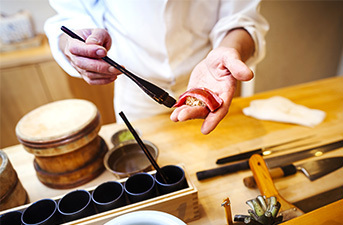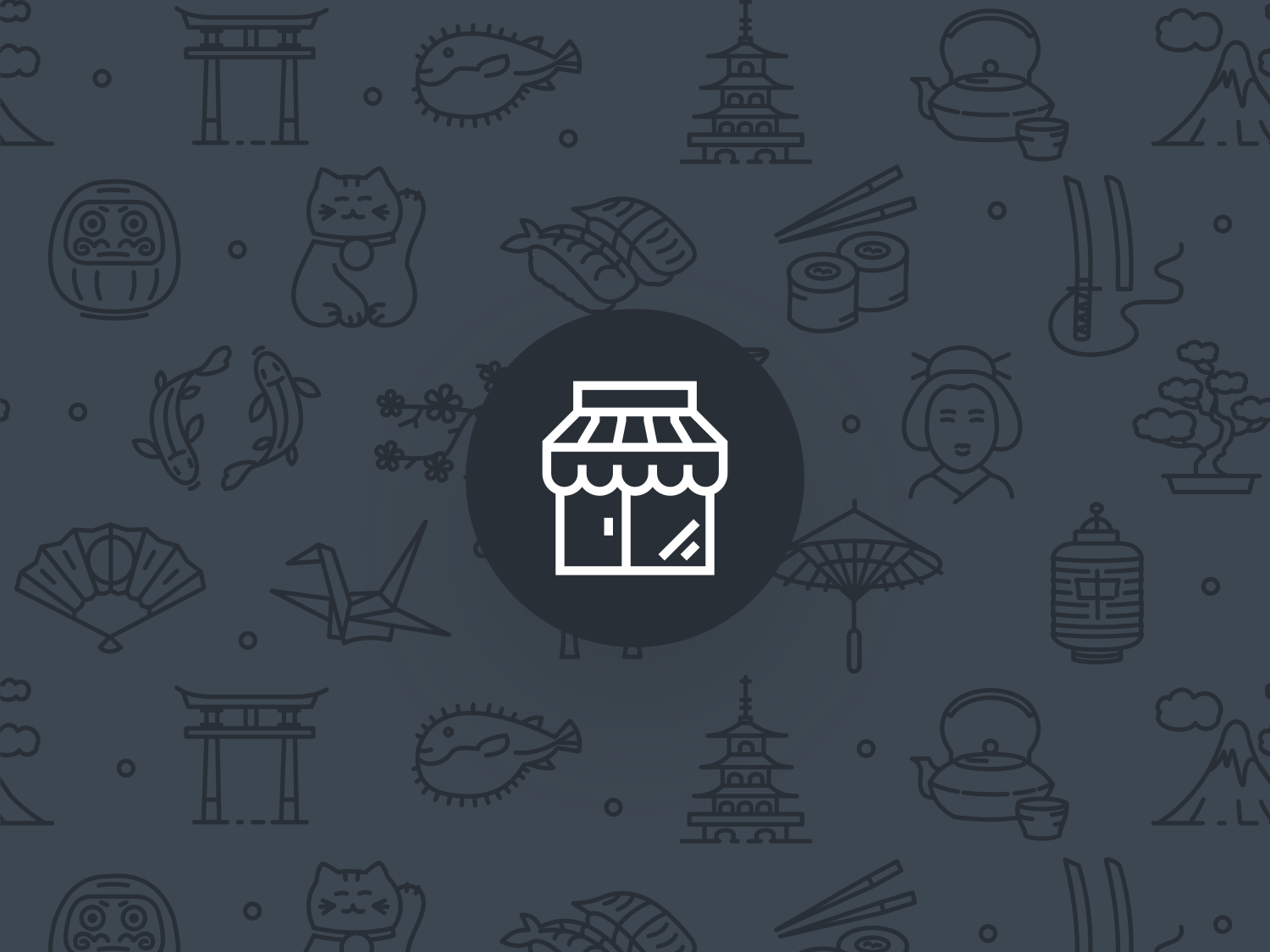Restaurants(7202)
Sukiyaki Shabu-Shabu Kobe Beef Ishida Herbis Plaza
Authentic, licensed beef from a reputable local Kobe restaurant, made available in the center of Osaka. An ideal setting for celebrations or just to get an authentic taste of Kobe beef during a trip to Kansai.
Yakiniku no Gyuta Honjin Links Umeda
This yakiniku restaurant is famous throughout Kansai for sourcing whole cows from domestic partner farms, keeping prices remarkably low — but still featuring premium wagyu beef cut with a professional butcher’s expertise.
Steak Kojiro Sendai Main Branch
This Sendai teppanyaki specialist shows off succulent A5-grade Miyagi wagyu beef and premium seafood like lobster and abalone, served in view of a beautiful traditional garden modeled after Kyoto’s Ryoanji Temple.
President Chibo Minami Main Branch
President Chibo’s Minami main branch elevates okonomiyaki and teppanyaki with live cooking, premium ingredients, and a luxurious setting in a convenient Namba location that’s popular with locals and visitors alike.
Kuramoto Saryo
Operated by Ishikura Shuzo, the last remaining sake brewery in Hakata, Kuramoto Saryo serves as a cornerstone of kaiseki and sake-making and resides in the former residence of the brewery's owner.traditions in Fukuoka.
Sushi Kimura Nihombashi
One city’s loss is another’s gain. Following a 15-year stint at one of New York City’s most exclusive sushi restaurants, Kimura Koji arrives in Nihonbashi with an Edomae omakase concept shaped by fish from his hometown in Hachinohe.
Beef Nagayoshi
Opened in 2014 in Shinjuku’s Arakicho, Beef Nagayoshi serves an approachable A5-grade wagyu omakase course, with the owner handling all the grilling and dining is done at izakaya-style counter seating.
Nishiazabu Nikusui Yamamoto
Drama in the look and on the grill — setting ground in Nishiazabu, Nikusui Yamamoto is one-upping the legacy of yakiniku with a refined and luxurious take on Japanese barbecue.
Karin (Ryogoku)
Omakase sushi restaurant Karin’s appeal is twofold: authentic Edomae sushi with a twist on traditional seasonings, as well as a legendarily handsome — and experienced — chef behind the counter.
Kuru Kuru Wanko
Conveyor belt sushi meets the iconic red lacquerware bowls of Iwate’s famed wanko soba, here at this restaurant in Shinjuku’s Kabukicho district. Snatch up as many bowls as you can eat.
Azabu Kuro-Shari
The sushi rice at this Azabujuban restaurant isn’t black just for aesthetics — mixed with activated carbon, it is purported to have healthy properties like a lower glycemic index and the ability to neutralize the heavy metals in fish.
Restaurant Tsukimichi
With its modern washoku interpretations, Restaurant Tsukimichi arrives in Fukuoka with a grander-than-grand scheme, magnificent dining rooms and a team of full-time assistants to tap into the city’s appetite for all things royal.
Yakiniku Roasken Azabu-Juban
Chef Serada Tomoyuki hand-selects leaner cuts of A5-grade wagyu beef for use at his restaurant, giving the wagyu at this yakiniku restaurant a beefier taste when compared to other restaurants.
FARM TO TABLE KANBE
Through its immersive projection mapping experience, FARM TO TABLE KANBE can express Kobe’s terroir and highlight the vegetables grown under the influence of the Rokko mountain range’s water and seasons.
Nihon Yakiniku Hasegawa Bettei Ginza
Operating under the concept of “a museum of supreme food and space” in the heart of Ginza, Nihon Yakiniku Hasegawa Bettei Ginza merges the principles of Korean barbecue with Japanese cuisine in one wonderful, luxurious collaboration.
Naha Miyachiku
Naha Miyachiku in Okinawa’s capital Naha prides itself on serving award-winning Miyazaki wagyu and a dizzying lineup of seafood courses featuring lobster and abalone. Even its interior evokes Miyazaki’s natural landmarks.
Niku-Shari Azabu
Using only kuroge wagyu black beef from Miyazaki Prefecture raised on a strictly hormone- and antibiotic-free diet, “Azabu Juban’s best-kept secret” serves niku-kappo courses that are good for the gut and a delight to the tastebuds.
Basashiya Masashi Asakusa
A little slice of Kyushu in Asakusa with a view of the Azuma-bashi Bridge, Basashiya Masashi offers specialties from southern Japan, with their particular specialty being Kumamoto’s signature horse meat sashimi.
Suganoya Shinshigai
Kumamoto’s self-professed biggest purveyor of horse meat — the region’s most famous delicacy — has its most popular outlet in the beating heart of the city’s nightlife, the Shinshigai shopping street.
Suganoya Ginza-dori (Daiwa Roynet Hotel)
Kumamoto’s culinary history is best exemplified at this horse meat restaurant in the Ginza-dori Daiwa Roynet Hotel, just south of Kumamoto Castle.
amorphous Akasaka
Like its moniker, which describes a state where atoms and molecules lack structure, this innovative Akasaka restaurant eschews the predictable rhythms of dining standards.
Butasute KITTE Marunouchi
Butasute KITTE Marunouchi in Tokyo shines the spotlight on Mie Prefecture with hearty sukiyaki and shabu shabu meals featuring Ise wagyu beef — stunning city views included.
Yakiniku Heijoen Aqua City Odaiba
Set on the man-made island Odaiba, this yakiniku restaurant only serves the choicest cuts of A5-ranked wagyu and specially selected Japanese whiskies to compliment the meat-heavy fare.
Chibo Kyobashi Keihan Mall
Already building an empire across Japan, the Chibo brand opens its next branch in Kyobashi Keihan Mall, reaffirming that Osaka’s downtown-style savory pancake is still very much in gourmet vogue.
Hatsuneya
This kaiseki restaurant in Kawagoe — Saitama’s “Little Edo” — first opened in 1868 and now stands at the intersection of tradition and contemporary, offering a hyper-seasonal kaiseki menu.
Akasaka Teppanyaki Fillet
On the first floor of Hotel Hillarys Akasaka, Akasaka Teppanyaki Fillet delivers flambe-fueled teppanyaki theatrics to just six guests at a time, all within the intimate glow of its dimly lit counter space.
Yakiniku Jinseki Nishiazabu
Recently opening its doors in the spring of 2024, this hidden yakiniku restaurant in Nishi Azabu is introducing Jinsekikogen’s Jinseki beef, a breed of kuroge wagyu so rare that it is called “phantom wagyu.”
Nouka no Daidokoro Shinjuku Sanchome
Entrusting their day-fresh vegetables from 600 domestic farmers, taste a different side of Japanese vegetarian cuisine at this farm-to-table restaurant next to Shinjuku-sanchome Station.

